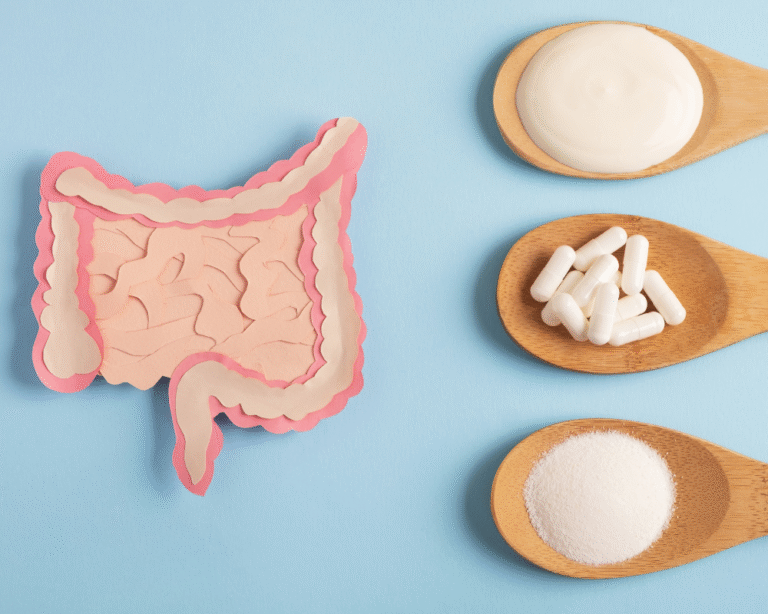The Hidden Link Between Gut Health, Hormones, and Histamine
Digestive enzymes are often overlooked in healing protocols, yet they are foundational for proper digestion, nutrient absorption, and even hormonal balance. If you’ve been struggling with unexplained bloating, fatigue after eating, or digestive upset—even while eating healthy—digestive enzymes may be the missing piece.
In this post, we’ll explore why some people need digestive enzymes, especially those dealing with MCAS (mast cell activation syndrome), gallbladder removal, hormonal imbalances, constipation or diarrhea, and excess weight due to liver inflammation.

1. You’ve Had Your Gallbladder Removed
Without a gallbladder, your body no longer stores and concentrates bile, which is critical for breaking down fats. This can lead to:
- Poor fat absorption
- Fat-soluble vitamin deficiencies (A, D, E, K)
- Greasy stools or floating stool
- Hormonal imbalances (since hormones are fat-based)
How enzymes help: Lipase (fat-digesting enzyme) and ox bile (for some) can compensate for poor fat digestion and reduce bloating or discomfort after meals.
MCAS Connection: The inability to digest fats properly can cause gut inflammation, which worsens mast cell activation and histamine reactions.
2. You Have Excess Weight or Belly Fat
Excess fat—especially around the belly—is often tied to liver congestion or fatty liver, which impairs the production of bile and slows digestive function.
Liver inflammation leads to:
- Sluggish metabolism
- Poor blood sugar balance
- Difficulty breaking down fats, carbs, and proteins
How enzymes help: A broad-spectrum digestive enzyme can lighten the burden on the liver, improve nutrient absorption, and ease bloating.
3. You Struggle With Constipation or Diarrhea
Irregular bowel movements are often a sign that food is either:
- Not being broken down properly
- Fermenting in the gut and feeding bacteria
Constipation may result from poor bile flow or low enzyme output. Diarrhea can be triggered by food intolerances or undigested fats.
How enzymes help:
- Cellulase and hemicellulase help break down fiber
- Alpha-galactosidase prevents gas from beans and crucifers
- Lipase and protease support smoother digestion and bowel regularity
4. You Have Hormonal Imbalances
Hormones are built from cholesterol and fats. Poor digestion of these nutrients can lead to:
- PMS or painful cycles
- Estrogen dominance
- Cortisol dysregulation
- Thyroid symptoms
How enzymes help: Lipase improves fat breakdown, which supports hormone production. Protease supports protein absorption, needed for hormone signaling.
5. You Suspect MCAS or Histamine Intolerance
MCAS involves hyperactive mast cells that release histamine in response to triggers—including poorly digested food.
Enzyme deficiencies can lead to:
- Fermentation of carbs → gas and bloating
- Protein breakdown issues → immune activation
- Fat malabsorption → inflammation
How enzymes help: Choosing MCAS-friendly enzymes (plant-based, free of bromelain, papain, and fermented fillers) can calm the gut, reduce immune activation, and improve nutrient uptake.
Final Thoughts: How to Know If You Need Enzymes
You might benefit from digestive enzymes if you:
- Feel bloated or fatigued after eating
- Have skin issues, allergies, or food sensitivities
- Experience hormone irregularities
- Have had your gallbladder removed
- Deal with chronic constipation or diarrhea
The right enzymes can transform your digestion and open the door to better energy, balanced hormones, and clearer skin. But most importantly, they can prevent further damage of organ tissues or chronic inflammation.








